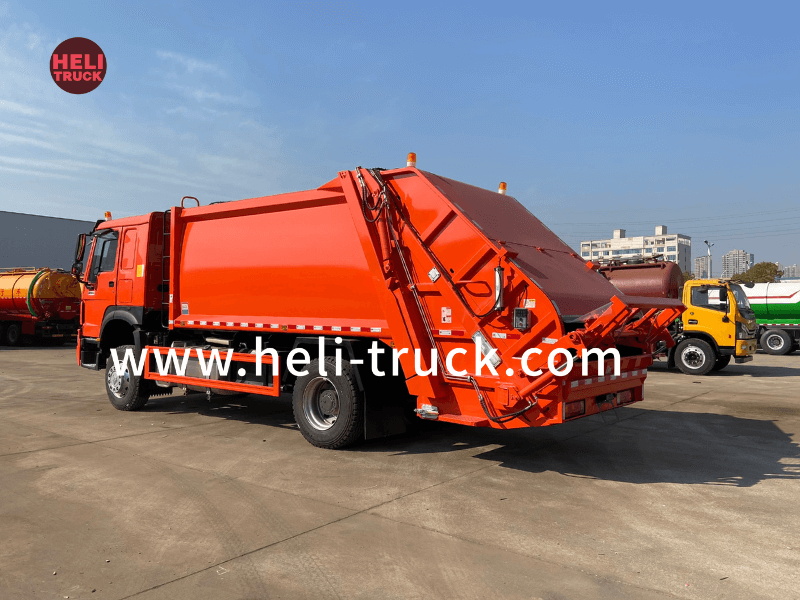Introduction (Word Count: 200 words)
Waste management is a critical aspect of maintaining a clean and healthy environment. In rural areas, efficient waste management systems are often lacking, leading to environmental degradation and health risks for local communities. However, with the advent of garbage compactor trucks, these challenges can be overcome, providing an effective solution for waste disposal in rural areas. This article explores the significance of garbage compactor trucks, their benefits, and their impact on waste management practices in rural communities.
1. Understanding the Need for Improved Waste Management in Rural Areas (Word Count: 300 words)
1.1 Challenges of waste management in rural areas
1.2 Impacts of inadequate waste management on the environment and public health
1.3 The importance of proper waste disposal systems in rural communities
2. heli truck : An Overview (Word Count: 400 words)
2.1 Definition and functionality of garbage compactor trucks
2.2 Key components and features of garbage compactor trucks
2.3 Different types of garbage compactor trucks available in the market
3. Benefits of Garbage Compactor Trucks in Rural Areas (Word Count: 600 words)
3.1 Increased efficiency and productivity in waste collection
3.2 Reduction in manual labor and associated health risks
3.3 Improved waste segregation and recycling capabilities
3.4 Minimization of odors, pests, and diseases
3.5 Cost-effectiveness and long-term financial savings
3.6 Positive impact on the environment and sustainable development

4. Implementation and Operation of Garbage Compactor Trucks in Rural Areas (Word Count: 700 words)
4.1 Assessing the waste management needs of rural communities
4.2 Establishing a comprehensive waste management plan
4.3 Selecting appropriate garbage compactor truck models
4.4 Training and capacity building for local waste management personnel
4.5 Maintenance and servicing considerations for garbage compactor trucks
4.6 Community engagement and awareness campaigns
5. Case Studies: Successful Implementation of Garbage Compactor Trucks in Rural Areas (Word Count: 600 words)
5.1 Case study 1: Garbage compactor trucks in rural regions of Country A
5.2 Case study 2: Sustainable waste management practices using garbage compactor trucks in Country B
5.3 Case study 3: The impact of garbage compactor trucks on waste management in a rural community in Country C
6. Overcoming Challenges and Future Perspectives (Word Count: 400 words)
6.1 Financial constraints and resource availability
6.2 Infrastructure development and accessibility in rural areas
6.3 Government policies and regulatory frameworks
6.4 Technological advancements and innovations in garbage compactor trucks
6.5 Community participation and ongoing support
Conclusion (Word Count: 200 words)
Garbage compactor trucks have emerged as a game-changer in waste management practices, particularly in rural areas. These vehicles offer numerous benefits, including increased efficiency, improved health and hygiene, reduced environmental impact, and cost-effective waste disposal solutions. By implementing comprehensive waste management plans, selecting appropriate garbage compactor truck models, and engaging local communities, rural areas can overcome their waste management challenges and pave the way for a cleaner and healthier environment. Government support, technological advancements, and community participation will be crucial in ensuring the long-term success and sustainability of waste management systems in rural areas. With the continued advancement of garbage compactor truck technology, the future holds great promise for transforming waste management practices in rural communities, leading to a brighter and greener tomorrow.
